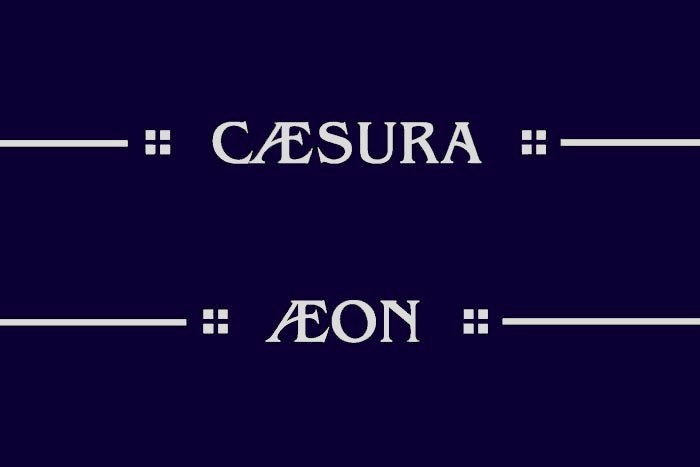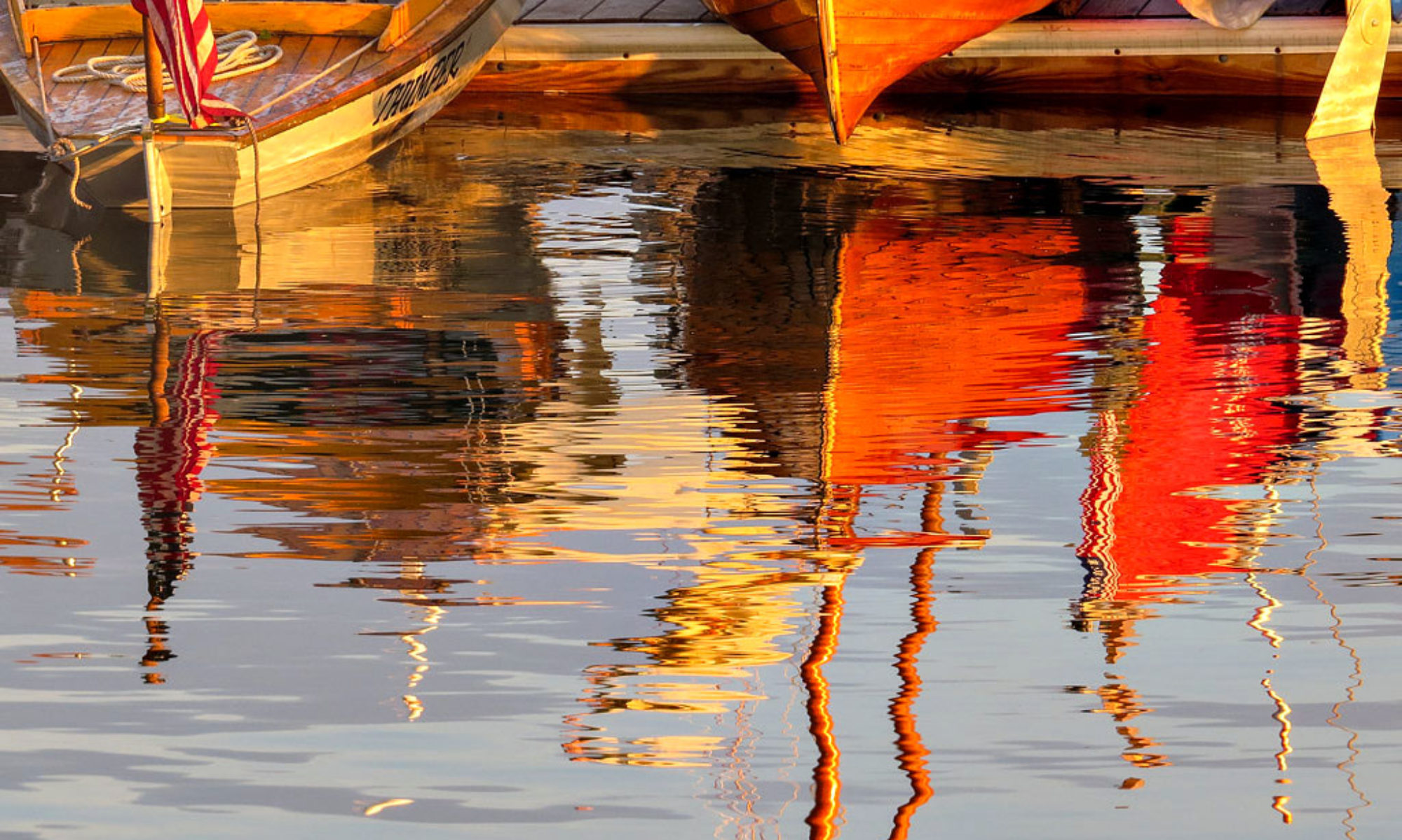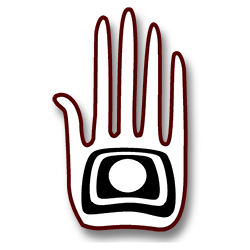 Lettering style, ready for the printer.
Lettering style, ready for the printer.
Sorry, no pictures here. Just a story.
Names are a very personal thing. Most people following along from the beginning know that “North” and “South” have just been convenient working titles, used to keep everything straight while all the pieces come together. I always figured the boats would name themselves when the time came, and they did, months ago, but I didn’t want to commit until it was certain. Last week I had to fill out the registration forms for the Mid-Atlantic Small Craft Festival, and there was a blank there for “Boat Names” which had to be filled in, and I did, so I guess that time has come. Some background and explanation is in order, though.
I’ve always had a very complex – some would say “unusual” – relationship with Time. Yes, that’s a capital T. Friends who knew me in my 20’s would say in those years I was a tad obsessed with the whole idea, but soon learned I had good reason.
If Time is indeed like a river, it’s a tidal river that ebbs and flows, can stall to a standstill, sometimes going backwards, sometimes rushing forward in a torrent. It’s a very relative thing, not universal at all. People have premonitions in advance of things that come true, or suddenly remember things that happened far in the past so vividly they re-experience them in the present. The idea of Time as a constant is just a false, artificial concept we created for our own convenience (originally the convenience of the US railroad barons in the 19th century, but that’s for another post).
It’s not completely benign, either. Besides the non-linearity of time, which can be disturbing enough, very real dangers seem to emanate from it; specifically from its precise measurement, for some reason. Though it’s mellowed over the years, to this day I still cannot wear or carry any sort of time piece for fear strange and alarming things will start to happen again.
My earliest memory of the effect is an Easter morning when I was 5 years old. I got up from bed frightened one night, and I went downstairs to tell my mother I’d had a vision that our house was going to burn down. She told me I’d probably just had a bad dream. I told her I hadn’t been asleep, and was too afraid now, so she came upstairs to sit with me until I nodded off. As we talked, I showed her how the blankets in my bed sparked when I moved my legs. She thought that’s where I got the idea. Maybe it was.
Not long after that, though, on Easter morning, I woke up in my dad’s arms as he carried me down the smoke filled stairway. He set me down at the open front door with the rest of the family, wrapped in a heavy quilt, and disappeared. The house was full of smoke except for about three feet of clear air pooled along the floor. Chairs, lamps, pictures, all dissolved about halfway up the walls. My mother tried to keep me by the door but I wanted to find my dad, and crawled across the living room to the kitchen. There I saw his disembodied bare legs, topped in boxer shorts, rushing back and forth to the sink with a bucket, the smoke in the far corner flickering hot orange. I remember firemen arriving, clomping around in big boots and sooty coats, and how quiet and peaceful the neighborhood seemed so early in the morning. The clock radio on the counter had shorted out, and set the cabinets on fire.
When I went off to college, my girlfriend gave me a gold pocket watch, so that every time I checked the time I would think of her, she said. The day the crystal popped off and the watch stopped she called to say we should break up. No big deal, really, just an odd coincidence, only remarkable because it was the first of a series of similar events far more significant.
I bought a wrist watch to replace the pocket watch. That November several of us were in the woods cutting trees to put up firewood for the winter. Someone yelled out and I looked up to see a tree falling the wrong direction. I slipped, scrambled and stumbled through the brush, getting clear just as the tree landed with earth-shaking thunder. As we congratulated ourselves on the lucky escape, I noticed my watch was missing. It was found under the tree days later, crushed right where I was standing.
I bought another pocket watch to replace the wrist watch, and one day my friend Scott and I went horseback riding. We decided to gallop back across a freshly plowed field on the way home. Other horses broke free from their riders and merged with ours into a herd in a wild, uncontrolled race. I looked down to see my watch shaking loose from the pocket, not able to let loose the reins, and saw it fall to the ground where the galloping herd trampled it into the earth. We gained control of our horses just before they charged into the woods, pulling up short of the low hanging limbs, but never found the watch.
I got another pocket watch and took the same friend, Scott, sailing for his first time at my grandparents’ place on the Rappahannock River (he happened to also be at the wood cutting incident, we figured out later). A winter squall blew up and capsized us two miles from shore. We righted the small boat, but it was swamped and sluggish, barely responding, trying to capsize again, and the wind was blowing us directly out to the open Chesapeake. And it was getting dark. The storm grew worse as we fought our way toward shore. We caught the last finger of land at the end of Windmill Point where we beached the boat and crawled ashore exhausted, huddling in the lee of a jetty. As we shivered there I pulled the watch from my pocket to see how long we had been out. The watch was not waterproof.
I lived with several other people in an old house at the time to save money. We split the rent and utilities and lived in separate sections. One Sunday morning I got up very early (unusual for me) and went downstairs from my room in the attic to the other part of the house on the first floor, where I thought I smelled . . . not smoke really, but something hot. In the kitchen, the clock/timer on the old 50’s era stove had malfunctioned and turned the oven on full blast in some sort of extreme self-cleaning mode. It was red hot, and paint was peeling off the walls. I unplugged the stove with a broom handle and called the fire department, who disconnected the stove, clock and all, and tossed it out in the yard. We had never used the clock or the oven. In fact, the clock had never worked.
This was all in the span of two or three years. By this point I had heard the message clearly, I just didn’t know what it meant, but I definitely stopped buying or wearing watches. I started to get a little freaked out about it, too, and began making distorted clock sculptures; not like Dali, but just as strange. People were starting to think I was strange. Especially Scott.
Many years later, I was in another friend’s living room late one night, relating all these stories. Suddenly a loud, rasping, buzzing noise came from the kitchen. We walked in to find the electric clock/timer on the gas stove had malfunctioned and was going off like an angry hornet in a plastic cup. She said they had never used the clock or the timer, and I was accused of causing it, or pulling some kind of joke for effect. It wouldn’t turn off. We unplugged the clock from the wall. When no one was looking, I went back and cut the cord off the back of the stove and threw it away.
There may be more stories like these I’m not remembering at the moment, but you get the idea.
Digital clocks don’t seem to be a problem, but I still won’t wear one, and haven’t for over 30 years. I have no idea if the problem is still latent, gone underground, or just gone, but I see no reason to risk anything now. I get along fine without knowing what time it is.
Oddly enough, clocks and time are closely associated with navigation and the sea, and the two have an interesting history. In fact, accurate navigation was only made possible by the invention of an accurate clock, and the fellow who gets credit for it in the 18th century, John Harrison, made it his life’s work. His life was consequently a mixture of brilliance, bad luck, and professional sabotage, with decades of poverty ending in great wealth in the last years of his life. Our modern GPS systems are based on the same basic principal as navigation in the 18th century, and it’s only possible with super accurate clocks on satellites which, get this, have to be corrected using Einstein’s Theory of Special and General. . . wait for it . . . Relativity. Time is not the same for all clocks, not even for the same clock – it goes faster or slower depending on the vantage point of the observer, and where the clock is located.
This is all very interesting, you say, but what does this have to do with naming your boats? Well, here are the names, which came to me last Spring while napping on the porch swing, swinging like the pendulum of a clock:
“South” – the off-white boat with the tanbark sail, the one getting all the attention now – will be called Caesura, pronounced seh-zura. What is caesura? Within a line of poetry, it is the moment you naturally pause to take a breath. These little pauses, unmarked and seemingly insignificant, affect the rhythm of the whole poem, as well as the breathing of the reader, until the two, the poem and the reader, are aligned as one; just as those little moments when you might take a sail on a quiet evening, when time seems to stand still or go on forever, affect the pace of your whole life.
“North” – the midnight blue boat with the cream sail – will be called Aeon. Sometimes spelled Aion, it’s an immeasurably long span of time, so long the Greeks considered them minor deities, personifications of Time, emanations of the original universal god, almost like angels. The idea is complex, and appears in everything from Plato to early Gnosticism. It’s derived from same word for life. It can also refer to the One, the eternal thing that existed before the beginning, before Time itself.
The two names are linked by a common ligature, which I find appealing. The joining of the A and E into a single new letter goes back several thousand years. In Old Anglo-Saxon, for instance, the name of the character means “Ash Tree,” the same tree used for the strongest elements of these boats.
But, it was only later I realized they are also linked as mirror images, the Yin and Yang, of Time. One is so brief as to be contained within the span of a single breath, the other so long as to be essentially infinite, going on forever.
For someone who seems to encounter problems whenever time is diced up, parceled out, and regimented into precise measurable increments, these names will be a reminder of the more realistic, more personal measure of time, and will serve as a kind of talisman for each boat.
Odd, obscure, and unpronounceable names, certainly. But it’s a departure from my previous pattern, which was to name boats for characters who died by drowning, which some people, particularly passengers, pointed out as rather odd way to name a boat. This is a considerable improvement, I think.


Good story, Barry!
I’m with you on the time “myth”. Time is a construct, convenient for creating rush hour.
But if there is no time, why do we covet it so much?
Sunday, September 26, 2010 – 12:26 AM
interesting as well because your two daughters names start with A and E
Sunday, September 26, 2010 –
Wow, you’re right. I hadn’t thought of that. Guess I’ve been fond of that combination for a while. Consistency is a virtue.
Hey Doryman. The whole Time thing is pretty fascinating stuff – the history of it’s measurement, I mean. Something we take so much for granted as a given, a constant everywhere, is actually only a very recent convention, and totally made up.
Sunday, September 26, 2010 – 09:42 PM